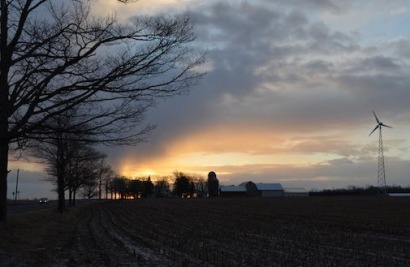
If approved by the Minnesota Public Utilities Commission, the approximately $30 million in grants will bring to nearly $200 million the total amount provided to renewable energy projects from the fund since 2001.
“Investments like these ensure there will be a variety of cost-effective renewable energy technologies available to serve our customers in the future,” said Dave Sparby, president and CEO, Northern States Power Co.-Minnesota, an Xcel Energy company. “The Renewable Development Fund invests in demonstration projects and research aimed at helping spur development of new wind, solar and biomass technologies.”
Among projects recommended in a report filed with the commission were:
Solar energy projects
• Edison High School, northeast Minneapolis: a 485 kilowatt solar installation with an educational and research component.
• Central Corridor, St. Paul: a 350 kilowatt solar project at the Target store in the Midway area, a 700 kilowatt solar installation at the Goodwill Easter Seals corporate headquarters and a 252 kilowatt solar installation at a housing and urban redevelopment project by Aurora St. Anthony Limited LLC.
• Minneapolis-St. Paul International Airport: a 1.18 megawatt solar installation located on a parking ramp at Terminal One.
• Minneapolis Park and Recreation Board: installation of a 150 kilowatt roof-mounted solar array at a park board building and five smaller installations at other locations.
• Mankato: a 907 kilowatt solar park by Best Power International LLC and the School Sisters of Notre Dame. This is the first RDF project in Mankato.
Small wind projects
• Minnesota Clustered Small Wind Project: A 500 kilowatt project, developed by Bergey Wind Power Co., consisting of the installation of 50 10 kilowatt wind turbines in Stearns, Benton and Meeker counties.
The grant awards also include funding for solar and wind research projects conducted by the University of Minnesota and a private sector contractor.
The Renewable Development Fund was created by state statute in 1999. The grants go to projects that aim to identify and develop new or emerging renewable energy sources. Grants have been awarded to research universities, nonprofit organizations, commercial businesses and government agencies.
Nearly 70 renewable energy proposals were reviewed during the current funding cycle. The recommendations reflect input from the fund’s advisory group, which includes representation from Xcel Energy, environmental groups, Xcel Energy customers and the Prairie Island Indian Community.
Most of the grant recipients will use the energy generated from the projects to meet their own power supply requirements; others will sell their output to Xcel Energy.
The Minnesota Public Utilities Commission is expected to consider and act on the grant recommendations by November.
For additional information:

